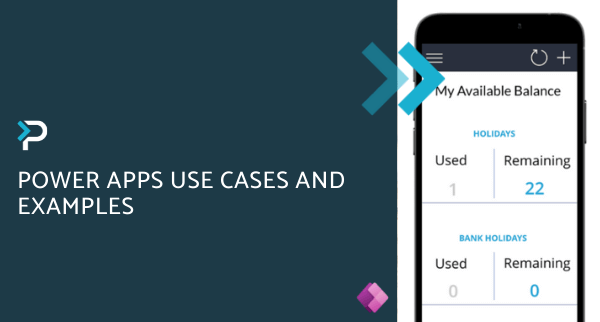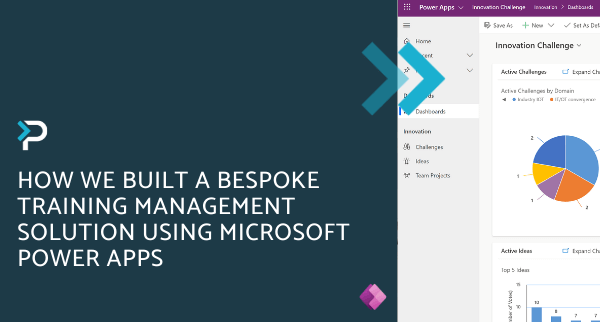How can Microsoft Power Apps help in the Health & Social Care sector?
How can Microsoft Power Apps help in the Health & Social Care sector?
December 13th, 2021
4 min read
Health & Social Care organisations operate under huge pressure to fulfil the demands of today’s patients. Microsoft Power Apps is quickly becoming the go-to product to help overcome business challenges within the industry, given the ability to quickly build innovative solutions that enable organisations to focus on delivering quality care to those using their services.
Within this blog, we explain what Microsoft Power Apps is, highlight the benefits and explore ways in which your Health & Social Care organisation can use it…
What is Microsoft Power Apps?
Microsoft Power Apps is one of the tools within the Power Platform that enables businesses to build custom apps, to accommodate your specific needs or solve your problems when you cannot find a suitable off-the-shelf solution. The ‘low-code’ approach that is consistent across the platform, means that the time to develop an application is much faster than traditional app development, and also more cost-effective.
The apps are designed to be accessed across mobile/tablet devices or a web-based browser, ensuring that all employees can easily gain access wherever they are.
Benefits of utilising Power Apps within the Health & Social Care sector
- Increase efficiency – With the help of PowerApps, numerous tasks such as onboarding new staff, patient registrations, processing payment approvals, managing handovers amongst doctors and nurses and more, can be automated. The rapid deployment capabilities mean that staff can get the app they need to support them in as quickly as possible, and spend more time focusing on other tasks.
- Combine data across multiple sources – Built on the Microsoft Dataverse, Power Apps leverages data from multiple sources such as Outlook, Excel, PowerPoint, OneDrive, Dropbox, Dynamics 365, Salesforce, SharePoint, and many more. This allows medical practitioners to access and share relevant data from wherever they are.
- Ensure total security and industry compliance – Healthcare providers must ensure that compliance standards are adhered to, and this often involves keeping activities recorded. Providers must also make sure that any stored data is done so securely. Power Apps ensures total protection of your data with strict security policies, and users must sign in with authorised credentials. When employees level or change roles, the access can be removed or adjusted accordingly.
- Grow with your organisation – The flexibility of Power Apps means that your applications can evolve with you. As your organisation grows and you face new challenges and changing processes, new Power Apps can be created, or current ones can be extended to support changing processes.
Examples of Power Apps
Care and Medication Plan
Aimed at those delivering daily care and medication, this app enables users to view and then edit data on a patient’s plan in real-time. Staff can log timings, details of care/medication given, attach notes and more, to ensure that all medication is administered as required. Notifications and alarms alert users when action is needed, and managers can gain a full overview of all staff and actions being taken.
Employee Onboarding
Pragmatiq recently implemented a Power Apps solution for Solutions Social Care (SSC), an established provider of services to children and adults with autism, learning disabilities, and complex needs. Previously, the organisation had a manual and time-consuming onboarding process for new workers. As part of the implementation, we leveraged functionality to simplify this process and enable SSC to track CVs, training, onboarding documents, communication, capture any other relevant documents, DBS checks, associated clients, training certifications and more, from one centralised solution.
To find out more, read the full case Solutions Social Care study here.
Service Request
Health & Social Care organisations can use Power Apps to create an interactive application to allow users to submit service requests for equipment or facilities. The data can also be accessed by field workers to enter information, log repairs made or attach any notes relating to the service or equipment.
Crisis Communication
Since the pandemic, many organisations have been faced with challenges around operational continuity. Assigning staff, monitoring employee health, updating emergency contact details, staying up to date with communications, tracking covid-related information for employees, etc, are common tasks that can all be completed remotely via a convenient app.
Employee Training
Within the Health & Social Care sector, ongoing training is often required. An Employee Training app can manage all elements of the booking and organisation process, from start to finish. Without an app, this can be a time-consuming and manual process, which consumes a significant amount of administration time. A solution Pragmatiq recently implemented for ECG Training, a healthcare training provider, enables staff to create courses, book trainers, locations and calculate financials, notify attendees, store relevant documentation, track communications and more.
To find out more, read the full ECG Training case study here.
Get in touch
If you would like more information about Microsoft Power Apps or how Pragmatiq can support your business, please get in touch via the contact form, or email us at info@pragmatiq.co.uk / call us on 01908 038110.
Want to keep in touch?
Sign up to our newsletter for regular updates.
"*" indicates required fields

